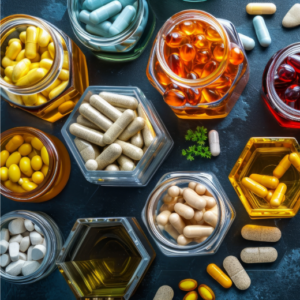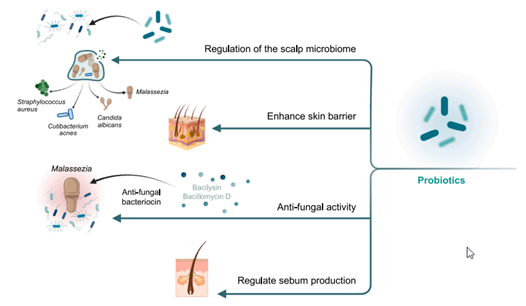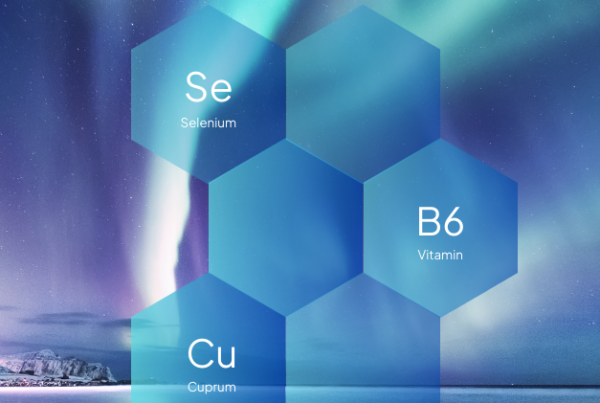 Probiotics for sleep & beauty, omega 3 for cognitive health, new EFSA opinion on iron nutritional values.
Probiotics for sleep & beauty, omega 3 for cognitive health, new EFSA opinion on iron nutritional values.
Let’s summarize some hot topics from recent authorities opinions and new peer-reviewed publications for you to be up-to-date!
1st News : EFSA opinion on iron nutritional values :
EFSA defines new iron safe level in a recent scientific opinion:
No UL for iron could be established for any age group. In this recent opinion, based on interventions in which black stools did not occur at supplemental iron intakes of 20–25 mg/day (added to a background intake of 15 mg/day), a safe level of intake for iron of 40 mg/day for adults (including pregnant and lactating women) was established. A range of values for minors from 10 mg/day (children aged 1-3y) to 35 mg/day (adolescents aged 15-17y); 5 mg/day for infants aged 4-11 months, covering iron intakes from fortified food and food supplements, but not from infant or follo-on formula.
**********
2nd News: Probiotics for sleep and hair growth&dandruff: results of 1 RCT and 1 meta-analysis
In a recent meta-analysis of several clinical studies, and systematic review of the mechanisms of action, probiotics have shown promising potential in improving hair growth and controlling dandruff through modulation of the immune pathway and gut-hair axis. The Wnt/β-catenin pathway, IGF-1 pathway, and VEGF are key molecular pathways in regulating hair follicle growth and maintenance. These promising results need to be confirmed in additional clinical studies for the detailed analysis of strains potential & combination and optimization of daily doses.
(Yin et al., 2024: Link: https://pubmed.ncbi.nlm.nih.gov/38698995/).
In a Randomized, Double-Blind, Placebo-Controlled Study, Bifidobacterium adolescentis SBT2786 Improves Sleep Quality and Mood in 126 Japanese Adults with Relatively High Levels of Stress (Murakami et al., 2024). The daily dose of B. adolescentis SBT 2786 was 1.0 × 1011 cells per day on a 4-week period. EEG, as well as PSQI, POMS questionnaires were used to measure objective and subjective sleep quality. Blood and saliva samples enables the determination of growth hormones, stress markers and safety markers.
A subgroup analysis was conducted on participants with high stress levels, and results showed that these participants experienced an increase in sleep duration and an improvement in sleepiness upon waking up and reported feeling well-rested during the day. B. adolescentis has been identified as a key member of the human gut microbiota in the production of GABA Furthermore, B. adolescentis has been demonstrated to exert mood enhancer and stress reduction effects by immune-modulating properties (NFkB)
(Link:https://www.mdpi.com/2072-6643/16/11/1702)
**********
3rd News: New recent meta-analysis suggests a beneficial effect of omega-3 supplementation for aggressive behavior in children and adults
A meta-analysis of 29 randomized controlled trials involving 3918 participants has shown modest short-term beneficial Omega-3 supplementation on aggressive behavior (Raine et al., 2024) by significantly reducing aggression in children and adults. Effects are found for different forms of aggression. Significant effect sizes were observed for all three analyses. There was no evidence of publication bias, and sensitivity analyses confirmed findings. Moderator analyses were largely non-significant, indicating that beneficial effects are obtained across age, gender, recruitment sample, diagnoses, treatment duration, and dosage. Omega-3 also reduced both reactive and proactive forms of aggression, particularly with respect to self-reports.
(Link: https://www.sciencedirect.com/science/article/abs/pii/S1359178924000466)
**********
4th News: ANSES sets new label warnings for Ashwagandha use in food supplements
In vitro and in vivo experimental results for various preparations of Withania somnifera raise questions about genotoxicity and suspicion of potential endocrine disrupting effects on fertility or functioning thyroid, hepatic, cardiac and central nervous system damage (effects hypnotics).
(Link:https://www.anses.fr/fr/system/files/NUT2021SA0077.pdf).
The main secondary metabolites of Withania somnifera are steroidal lactones, called withanolides, and piperidine and tropane alkaloids. There is a large variability of the contents of withanolides and alkaloids in the different organs of the plant both qualitatively and quantitatively, which makes it difficult to relate the secondary metabolites with effects reported in animals or humans. The few studies available do not allow the implementation evidence of critical effects necessary to establish a toxicological reference value or indicative toxicological value for Withania somnifera.
Due to the lack of data demonstrating the safety of Withania somnifera, undesirable effects observed in animals and humans (in particular endocrine effects of thyrotoxicosis type) from Vigilance Data and traditional use as an abortifacient, ANSES advised against the use of this plant in:
- pregnant or breastfeeding women;
- the population under 18 years old;
- people suffering from endocrine disorders (particularly dysthyroidism and hyperandrogenism);
- people with liver or heart problems;
- people following treatment having a depressive action on the nervous system central.
**********
5th News: First report of the HoA working group “Food Supplements” defines a list of botanicals that may lead to Article 8 restrictions of use of these botanicals in EU due to potential safety concern.
The Heads of European Food Safety Agencies (HoA) established the working group “Food Supplements” (HoA WG FS), with members from 26 states, to agree on a common approach for the management and assessment of certain ‘other substances. Among the substances and botanicals that may pose a risk for the consumer based on exposure data, toxicological profile and recent MS opinions : coumarin in plants, curcumin in Curcuma longa, Hypericum perforatum, Melaleuca spp EO, melatonin, p-synephrin tryptophan, Actaea racemose, Lepidium meyenii, Ocimum tenuiflorum, Tribulus terrestris, Withania somnifera.
**********
6th News: EMA updates Zingiber officinale (ginger) root monograph (draft version 1- 14th of June 2024)
EMA published a new draft version 1 – on the 14th of June for ginger root: There is an extension on the indications and daily doses in addition to motion sickness and digestive health. For pregnant and lactating women, a review of the existing literature has been performed and the conclusions are the following ones:
“A moderate amount of data on pregnant women (between 300-1000 pregnancy outcomes) indicates no malformative or feto/neonatal toxicity of ginger root. Animal studies are insufficient with respect to reproductive toxicity. As a precautionary measure it is preferable to avoid the use during pregnancy. Safety during lactation has not been established. In the absence of sufficient data, the use during lactation is not recommended. “
You need a regulatory and scientific expert opinion to adjust you New Product Development Strategy and/or existing product update strategy for Self-care (Nutrition, Food Supplement, Medical Nutrition, Cosmetics) ? We may help:
- In adjusting or identifying the best product status depending on your claim/health benefits aimed in the appropriate target population
- In ensuring the regulatory conformity of the formula/label/ingredient and export strategy with our team of regulatory experts at international level
- In selecting a differentiating blend of actives with complementary mechanism of action
- In analyzing safety and efficacy data with our team of certified toxicologists and clinicians (PhD, GCP certified with experience in R&D, clinical operations) and optimize ingredient sourcing
- In writing the required regulatory and technical dossiers (quality, safety, claim justification, FSMP dossier, Annex II & III, PIF)
- In helping in the process of market authorization/notification
- In building and managing your post-marketing vigilance strategy
- In building new preclinical and clinical data for efficacy and safety of your ingredients and products
More information : https://www.rni-consulting.com/en/rni/food-dietary-supplement/
#Botanical #FoodSupplements #safety #efficacy #iron #omega 3 #ashwagandha




